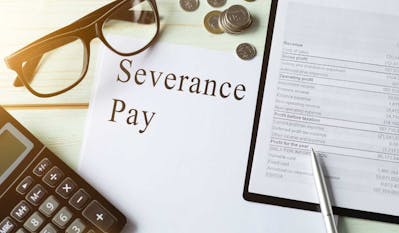A Tax Residency Certificate is an official document issued by the Inland Tax Revenue Department of Hong Kong.
This certificate acts as official confirmation from the Hong Kong Inland Revenue Department (IRD) that an individual or entity is a tax resident of Hong Kong.
Why and When Apply?
The main purpose of a Tax Residency Certificate (TRC), also known as a Certificate of Resident Status (CoR), is to allow taxpayers to claim benefits under the various double taxation agreements (DTAs) signed by Hong Kong with other countries. These agreements aim to prevent the same income from being taxed twice, once in the country of income origin and once in the taxpayer's home country.
By obtaining a TRC, Hong Kong residents and companies can potentially reduce or eliminate withholding taxes on income such as dividends, interest, and royalties earned abroad.
Also, it has become quite common in the last few years to see companies based in Europe request a Tax Residency Certificate from their suppliers in Hong Kong. The idea is to ensure that Hong Kong suppliers are subject to tax in the territory.
Who Can Apply?
Both individuals and corporations can apply for a TRC in Hong Kong, provided they meet certain criteria that establish their tax residency status:
| Applicant Type | Criteria for Eligibility |
|---|---|
| Individuals | - Ordinarily reside in Hong Kong - Spend more than 180 days in Hong Kong during a financial year or more than 200 days in 2 consecutive financial years |
| Companies | - Registered in Hong Kong - Registered outside Hong Kong but managed or controlled from Hong Kong (pre-2023) |
| Recent Changes | - As of 2023, companies only need to be registered in Hong Kong to qualify; no need to show management/control from Hong Kong |
For individuals, the easiest way to demonstrate presence in Hong Kong is to apply with the Hong Kong Immigration Department for a statement of travel records. This document shows the days of presence of a person in Hong Kong during a given period of time.
Application Process
Here are the main steps of the application process:
1. Gather the Required Documents
Before applying, you’ll need to collect all the essential documents. For individuals, this includes a copy of your passport or Hong Kong ID, proof of residency, and tax returns. Additional documents like utility bills, bank statements, or employment contracts may be required to demonstrate your connection to Hong Kong.
Companies need to provide a copy of their Business Registration Certificate.
2. Complete the Application Form (IR313A and IR1313B)
Once your documents are ready, the next step is to fill out the application form for a Tax Residency Certificate. The form asks for basic information, such as your name, address, and reason for requesting a CoR. It’s crucial to ensure that all the information provided is accurate to avoid any delays or complications. This form can be found online or on the Inland Revenue Department website.
3. Submit the Application
Submit your completed application and supporting documents to the IRD. Double-check that everything is included and accurate before submission. Missing or incorrect information can lead to delays or even rejection of your application.
4. Application Processing and Outcome
The processing time normally takes 21 days but is often faster.
If your application is approved, you’ll receive your Certificate of Tax Residence. If not, you will be informed of the reasons for the denial, and you may have the option to appeal or provide additional information. But based on our experience, the chances of success in appeal are low.
Keeping Your Tax Residency Status: Renewal and Changes
It’s important to remember that a Certificate of Resident Status is not permanent. Typically, it’s valid for one year, and you’ll need to renew it periodically to continue benefiting from Hong Kong’s tax agreements.
Our Experience
Obtaining a Tax Residency Certificate in Hong Kong has now become a relatively simple procedure.
You do not need to systematically apply for a TRC each year. Only do so when requested by a business partner.
Need help with getting your Tax Residency Certificate? Switch to Air Corporate today!






